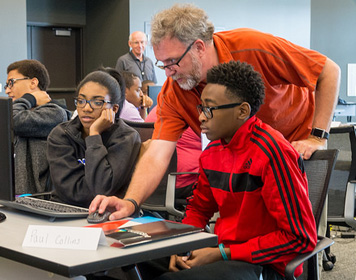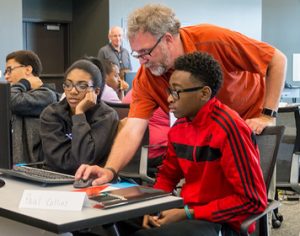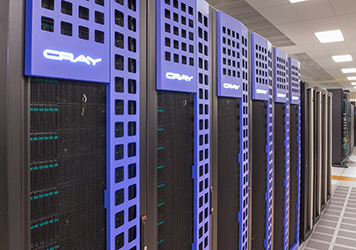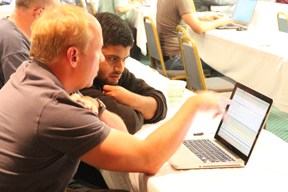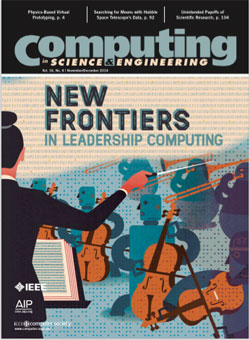
An IIT student team placed fourth in an annual 48-hour competition that challenges young computer scientists to tune and run a series of high-performance computing codes, non-stop, on a small cluster they build from their own design. The team of 5 computer science undergrads and one junior from Naperville Central High School competed with 8 other teams from around the world at the Student Cluster Competition at SC’15 in Austin, TX.
This year’s 5-node cluster design was built using Intel components. William Scullin and Ben Allen, both HPC systems administrators at ALCF, and Ioan Raicu, assistant professor of computer science at IIT and a guest researcher in Argonne’s MCS Division, worked closely with the team as coaches and mentors. Argonne and Intel provided technical and financial support. To read more about the competition, click here.

